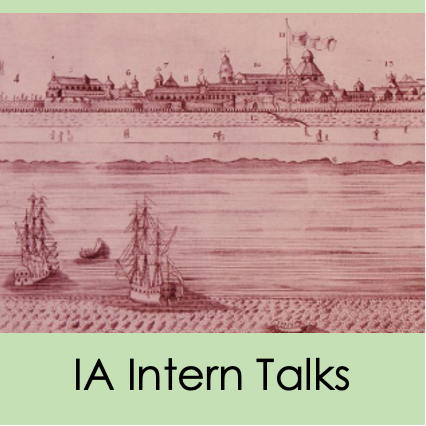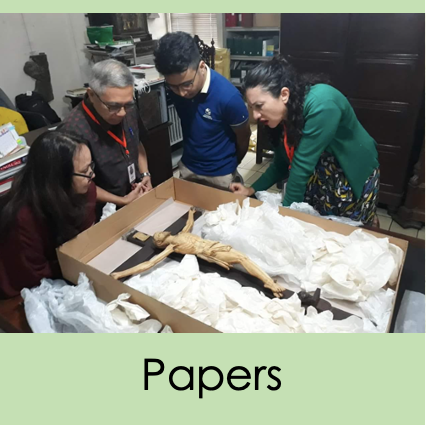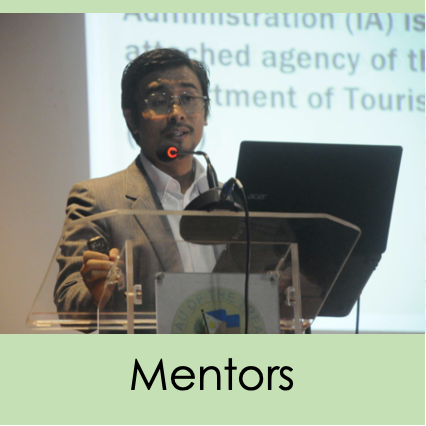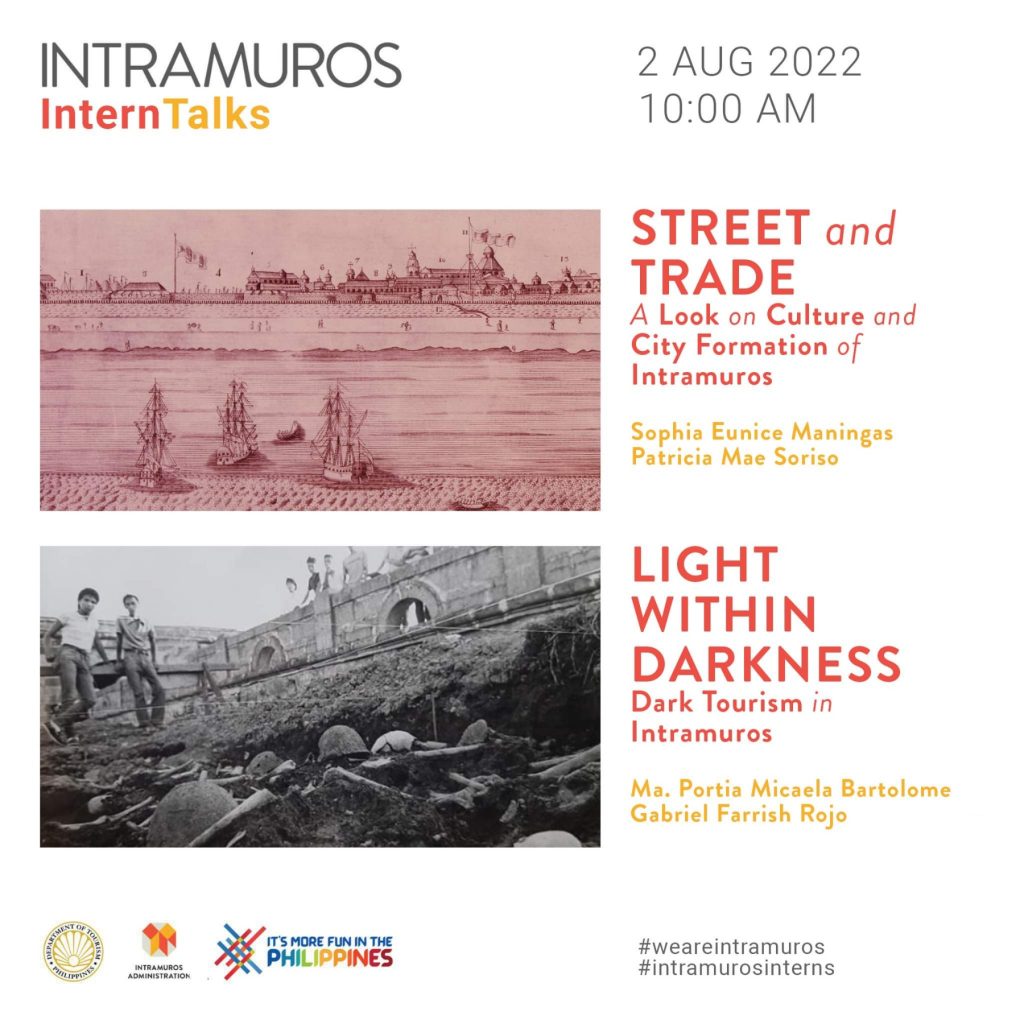
Street and Trade: A Look on Culture and City Formation of Intramuros
Sophia Eunice Maningas and Patricia Mae Soriso
The Walled city of Intramuros is a vestige of the Spanish regime’s three-hundred-year colonization of the Philippines. It remains a relevant setting of history and continues to become an exemplary site for understanding the Spanish influence on Filipino identity. As a witness to a manifold of cultural contact and economic trade from foreign powers, Intramuros encapsulates the enduring influence of the Spanish colonial power. Hence, using McGee’s model of the phases of development among Southeast Asian cities, this study aimed to describe the salient urban elements of Intramuros and construct a connection between the historical trade activities and its impact as reflected on the culture of the city. A qualitative case study research was conducted using data analysis to explain the relationship drawn between the historical commercial activities that took place in Intramuros and the influence such activities had on the culture of the city. By analyzing and drawing conclusions from both primary and secondary resource materials, the researchers elaborated on the significance of the Galleon Trade in the physical and cultural formation of Intramuros and its residence. The study was also able to highlight the crucial role of the Walled city’s location and layout in facilitating trade and fostering socioeconomic and cultural progress. Clarity about this topic will contribute to the limited literature discussing the implications of trading history in Intramuros to its existing culture.
Mentor:
- Christian Emmanuel Catahan
Panel Discussants:
- Kathleen Faye Lagasca, Faculty, UP Manila
- Jhon Glenn Espino, Faculty, Philippine Science High School
Light within the Darkness: Dark Tourism in Intramuros
Ma. Portia Micaela Bartolome and Gabriel Farrish Rojo
Intramuros is a historic walled city that plays an important role in defining the culture and values of Filipinos. Today, Intramuros functions as a historical site and a popular tourist spot. However, despite these wonderful features the walled city is depicting, history tells us that it also has its own dark past. Thus, this opens the discussion for dark tourism, which are sites associated with death and suffering, to be recognized in Intramuros. In this paper, the researchers aim (1) to assess possible dark tourist sites in Intramuros using the Dark Tourism Spectrum framework and (2) to explain the importance of dark tourism and its educational role. After gathering the data, the researchers evaluated three possible dark tourist sites in Intramuros, namely (1) Fort Santiago, (2) San Agustin Church, and (3) Museo de Intramuros. Furthermore, dark tourism plays an important role in deepening our understanding of the tragedies of the past and from there forming new perspectives of our history. This will allow us to strengthen our collective identities, reevaluate our moral compass, instill moral values, and provide opportunities for more emphatic engagements. And by visiting these sites, we are also actually remembering and commemorating those who have fallen, giving justice to their deaths. As this paper has focused more on the demand side of dark tourism, the researchers recommend exploring the supply side that tackles the motivations and perceptions of tourists about dark tourism.
Mentor:
- Christian Emmanuel Catahan
Panel Discussants:
- Kathleen Faye Lagasca, Faculty, UP Manila
- Jhon Glenn Espino, Faculty, Philippine Science High School
About the Speakers

Ma. Portia Micaela Bartolome is an incoming senior student of BA Social Siences (Area Studies) at the University of the Philippines – Manila. Her interests are in medicine, behavioral sciences, and the humanities.
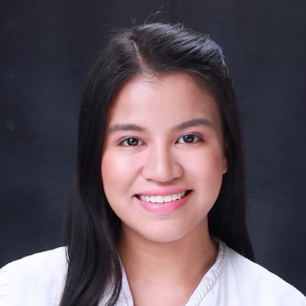
Sophia Eunice Maningas is an incoming senior student of BA Social Sciences (Area Studies) at the University of the Philippines Manila. She has participated in many studies that pertain to student behavior since she was in Senior High School. Her research interests include anything under the cultural history and economic history of the Philippines.

Gabriel Farrish Rojo is an incoming senior student of BA Social Science (Area Studies) at the University of the Philippines – Manila. His current research interests are in the fields of Psychology and Sociology. He was a University Scholar for the past two semesters and has been a consistent College Scholar prior to that.

Patricia Mae Soriso is an incoming senior student of BA Social Sciences (Area Studies) at the University of the Philippines – Manila. She is an active member of the Organization of Area Studies Majors. Her research interests include the political and cultural history of the Philippines and Southeast Asia, urban community development, and postcolonial women’s studies.
About the Panel Discussants
Jhon Glenn Espino holds a bachelor’s degree in History, magna cum laude, from the University of the Philippines Diliman. He is currently working as a Social Science teacher at Philippine Science High School – Central Luzon Campus.
Kathleen Faye Lagasca holds a bachelor’s degree in statistics from the University of the Philippines Diliman. She is currently an MA Demography student at the UP Population Institute. Additionally, she is a part-time lecturer at the UP Manila – Department of Social Sciences, handling courses in research and practicum. She is a student member of the Philippine Population Association, the Asian Population Association, and the International Union for the Scientific Study of Population. Her current research interests are fertility and family planning.
About the IA Intern Talks
Intern Talks is a webinar series that will showcase the final output of interns trained under the Center for Intramuros Studies (CIS) of the Intramuros Administration.
The Internship Program, through the CIS, is a research-oriented learning opportunity for interns to work directly with the Administration in its work in directing the orderly development and restoration of the Walled City. Through the Internship Program, the Administration invests in getting students and emerging professionals exposed to Intramuros Studies, Manila Studies, and heritage management. The Administration’s Internship Program challenges interns to apply and hone their current skills in research and development.
Testimonials on the Internship Program
Bartolome, Ma. Portia Micaela
“The program was a wonderful experience. Though it is an online internship program, I am still thankful to the Intramuros Administration (IA) for allowing me to participate. It helped me develop as a researcher and a good scholar. During my internship at the Intramuros Administration (IA) for a few weeks, I gained a lot of knowledge about historic and how they also conserve and preserve important historical sites in Intramuros. In my future academic career, I will use what I have learned from my internship experience.”
Maningas, Sophia Eunice
“Becoming a student-intern in the Intramuros Administration came with both the pressure and privilege. After a month and a half of working with the IA, I was able to observe the value of having a workplace that regards productivity and open communication even while working on a virtual setup. More than the grades and learnings about the ins and outs of Intramuros, the IA taught me that there is so much I can do as an individual to preserve what Intramuros has kept for the Filipinos.
Seeing as how my personal values and advocacies were aligned with my host institution’s goal of building and giving back to the community, the experience has allowed me to further reconcile my identity as an Iskolar ng Bayan and as a Social Sciences student. Hence, despite the pressure and struggles met along the way of writing a paper, the whole experience strengthened my resolve on how a research endeavor should always be in service of the people.
On top of the good work ethic and professional approach, the unceasing support and guidance from our mentor, sir Christian, were the foundation of the great and rewarding experience we had. As our practicum and research paper come to an end, I am beyond grateful for the opportunity to be considered as an intern for this respectable institution. Moving forward, I pledge to dedicate more time and attention not only on appreciating history and its lessons but also to use it as leverage as I face what lies ahead for the country socially, politically, and economically.”
Rojo, Gabriel Farrish
“Being an intern here at the Intramuros Administration has helped me a lot in developing my skills and experiences further as a researcher. While on-site work would have been more engaging and thrilling since we get to go to Intramuros every weekday, it did not diminish the benefits that we got, experience-wise. I am very much thankful to Mr. Christian Catahan as me and my co-interns were welcomed warmly. Being an intern meant seeing a glimpse of me, working in the future. It was a bit challenging gauging myself to work eight hours a day and five times a week (minus holidays). However, Mr. Catahan gave his utmost consideration and generosity to help us fulfill our tasks and would always give us the encouragement that we need. Overall, I had a great time while I am performing my tasks and at the same time learning more about the history of the Philippines.”
Soriso, Patricia Mae
“The experience of being a research intern at the Intramuros Administration allowed me to be a part of a knowledge-building institution that effectively honed both my theoretical and practical skills as an Area Studies major. Despite being held remotely, working under the guidance of Sir Christian Catahan has been fulfilling and productive. His hands-on and consistent monitoring gave us the confidence and freedom to pursue the topic of our interest. He also provided the source materials that served a salient purpose in our research. Moreover, working on the digital microsites for the landmarks within Intramuros helped establish familiarity and understanding of the area and its history, culture, and heritage.
This internship opportunity reintroduced me to Intramuros, both as a historical space and as a thriving collective community, which helped me gain direction as to how the field of area studies apply in the context of the Philippines. Overall, my internship at the Intramuros Administration equipped me with valuable exposure to research and further ignited my passion for producing academic writings that amplify the narrative of Filipinos and our enduring culture and heritage.”
Learn more about the Internship Program of the Center for Intramuros Studies
Contact us: [email protected]
Interested in applying for an internship at the IA Center for Intramuros Studies? Email us your CV with cover letter via [email protected].
Note: The opinions expressed by our interns in their papers and presentations during their internships with us do not necessarily reflect any statement, stand, or position of the Intramuros Administration or of any of its personnel. Moreover, inclusion of research papers or project proposals in the online database of the Center for Intramuros Studies or the website of the Intramuros Administration do not necessarily constitute as an endorsement.
For more information contact the Center for Intramuros Studies via [email protected]
Cannot find what you are looking for? Try requesting for more data via our eFOI Portal.


